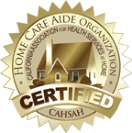Constipation means that you don’t have bowel movements very often; it is also defined as fewer than three bowel movements per week. When you do have them, they’re difficult and painful. Constipation is one of the most frequent gastrointestinal disorders; it can be acute or chronic and its prevalence increases with age due to loss of muscle tone. Risk factors include: inadequate dietary intake of fiber and fluids; inactivity and lack of exercise; and medications (antacids, iron preparations, anticholinergics, overuse of laxatives). Depression can also be a contributing factor.
If you are constipated, there are steps that you can do to feel better. 1. Assess the frequency and consistency of your bowel movements. Make sure that you do not ignore the need to have a bowel movement. The goal is to establish a bowel regimen. 2. Increase your dietary fiber by eating vegetables, whole-grain breads, oatmeal and bran cereals, nuts, and fruits, such as prunes. 3. Drink water and fruit juice, but avoid alcoholic drinks. Keep these fluids accessible and consume them at frequent intervals. 4. Take stool softeners or over-the-counter medications (as ordered by your physician). Laxatives should not be used regularly. 5. Eexercise regularly. Check with your physician first before starting an exercise program.
David C. Schaeffer, M.D., PH.D., and Lawrence J. Cheskin, M.D., Johns Hopkins University School of Medicine, Baltimore, Maryland, wrote that a patient has constipation if defecations decrease sufficiently to cause discomfort. When the veins around the anus swell, hemorrhoids can result. Its symptoms include tenderness or pain and bleeding; this is due to the hemorrhoidal tissues being directly irritated from the passage of hard stool. To prevent hemorrhoids, you need to keep your stool soft and follow the advice for constipation. Refrain from lifting heavy objects and sitting for long periods of time. Warm baths, bed rest, and topical medicines can help, too.
You need to call your health care provider if: the constipation might be the side effect of a new medicine; you are constipated often; constipation is accompanied by weight loss; you have a fever and cramps or stomach pain; constipation lasts longer than a week; and there is blood or mucus in your stool.







